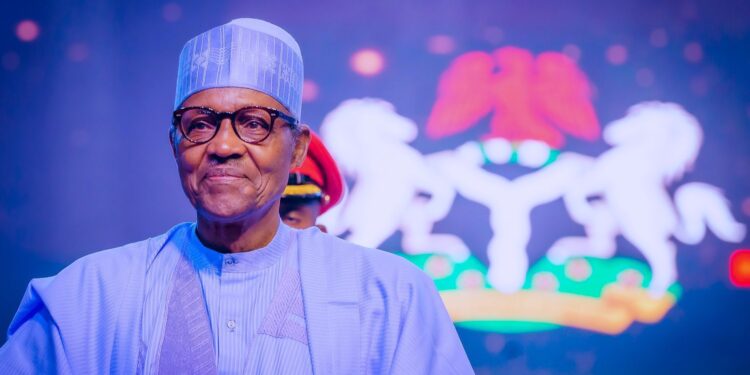High profile multi-billion corruption court cases won and lost under Buhari’s 8-year administration
The much-debated anti-corruption campaign of former Nigerian President Muhammadu Buhari spanned from May 29, 2015, to May 29, 2023. President Buhari ascended to office on the back of a strong anti-corruption message, running under the banner of the All Progressives Congress (APC), symbolized by the broom.
As the chief legal officer of the country, the former Attorney General of the Federation and Minister of Justice, Abubakar Malami SAN, was constitutionally empowered to lead or supervise the prosecution of corruption cases initiated by law enforcement agencies, including the Economic and Financial Crimes Commission (EFCC) and the Nigeria Police Force (NPF).
A number of high-profile corruption cases were prosecuted during this period. These involved public officials accused of diverting funds intended for national development:
Notable High-Profile Corruption Cases:
-
Senator Joshua Dariye (Former Plateau State Governor)
Convicted of N1.16 billion fraud, Dariye was prosecuted by the EFCC for criminal breach of trust and misappropriation of public funds.
On June 12, 2018, the Federal Capital Territory High Court sentenced him to 14 years for breach of trust and two years for misappropriation, to run concurrently.
In April 2022, he was among 157 inmates granted a presidential pardon by President Buhari after ratification by the Council of State. -
Jolly Nyame (Former Taraba State Governor)
Convicted over N1.1 billion fraud, Nyame faced a 41-count charge by the EFCC for money laundering, criminal breach of trust, misappropriation, and unlawful acquisition of public property.
In 2018, he was sentenced on 27 counts to a combined 14-year term, also to run concurrently. He was later pardoned by Buhari and the Council of State. -
Bala James Ngilari (Former Adamawa State Governor)
In 2017, Ngilari was convicted on a 17-count charge over the award of contracts worth N167 million without due process.
He was alleged to have conspired with top aides to award contracts to El-Yard Motors Company for the supply of 25 Toyota Corolla cars (2015 models).
However, the Court of Appeal in Yola later overturned his conviction and acquitted him. -
Orji Uzor Kalu (Former Abia State Governor)
In December 2019, the Federal High Court in Lagos sentenced him to 12 years in prison over N7.65 billion fraud.
Although the Court of Appeal upheld the ruling, the Supreme Court later quashed the conviction and remitted the case back to the lower court for retrial. -
Andrew Yakubu (Former GMD of NNPC)
In 2017, the EFCC discovered $9.7 million and £74,000 in a fireproof safe at Yakubu’s Kaduna home.
He was charged with money laundering, but in 2022, the Federal High Court in Abuja discharged and acquitted him, citing the EFCC’s failure to prove he received funds exceeding the N5 million legal threshold.
The judge also ordered the Central Bank of Nigeria to return the money to Yakubu. -
Paul Usoro SAN (Former NBA President)
In 2021, the Federal High Court in Lagos acquitted Usoro of the N4.2 billion fraud charges filed by the EFCC.
Justice Rilwan Aikawa ruled that the EFCC failed to establish a prima facie case, accepting Usoro’s “no-case” submission. -
Babachir Lawal (Former Secretary to the Government of the Federation)
On November 18, 2022, a High Court in Abuja discharged and acquitted Lawal and five others of involvement in N544 million contract fraud.
Justice Charles Agbaza held that the EFCC did not prove its case, leading to their acquittal.
Legal Experts and Critics Weigh In
Human rights lawyer and anti-corruption advocate, Marshall Abubakar, in an interview with Nairametrics, criticized the Buhari administration’s anti-corruption drive as “selective.”
“It was more of a political witch-hunt against opposition figures. Some prosecutions only happened due to public pressure,” he said.
He added that corruption was reportedly widespread—even within the Presidential Villa—despite the administration’s claims.
“There were some minor successes, but in many cases where convictions were secured, the Presidency intervened for political reasons, compromising the credibility of the EFCC.”
According to him, this sent a demoralizing message to the Commission:
“This weakened the EFCC’s resolve and shifted its focus toward low-level internet fraudsters like Yahoo Yahoo boys, while powerful corrupt officials walked free.”
He further referenced Section 175 of the Constitution, noting that the powers of the Attorney General should be exercised with fairness, equity, and justice—something he claimed was missing.
“Sadly, Buhari’s anti-corruption fight became a tool of political convenience rather than true justice.”
Barrister Joseph Chinedu, a seasoned banking and finance lawyer, echoed similar sentiments, describing Buhari’s anti-corruption stance as “baseless and a sham.”
“We witnessed the conviction of governors for massive looting, only for President Buhari to later pardon them. That undermines everything he claimed to stand for.”
He referenced the case of former CBN Governor Godwin Emefiele, who allegedly acquired 753 duplexes under Buhari’s watch—an example, according to Chinedu, of unchecked corruption.
He also pointed out that politicians who defected to the ruling APC suddenly escaped scrutiny from anti-graft agencies.
“It became clear that aligning with the APC offered immunity. This alone discredits the administration’s entire anti-corruption narrative.”














Post Comment